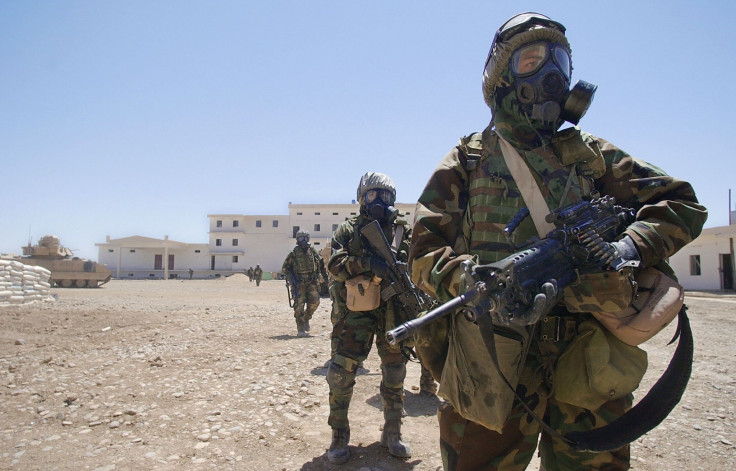US Orders Medical Exams, Health Monitoring For Troops Exposed To Chemical Agents During Iraq War

U.S. troops who were exposed to chemical weapons in Iraq will be given medical examinations and their health will be monitored over the long term, after an investigation by the New York Times found that some service personnel had been denied proper medical treatment despite being exposed to hazardous chemicals.
The announcement stems from a review ordered by Secretary of Defense Chuck Hagel, after the Times revealed that U.S. troops who discovered chemical weapons in Iraq, which were left over from the Iran-Iraq war, were exposed to the nerve agent sarin and the burning agent mustard gas.
A senior defense official who spoke to Stars and Stripes on the condition of anonymity said that Hagel asked military chiefs and service-branch secretaries to examine the medical care and treatment received by about 20 American soldiers who were exposed to chemical warfare agents. The same official noted that Hagel was not seeking a formal review or investigation.
The Times report said that the news of the discoveries was suppressed by the authorities for a variety of reasons and, in a bitter irony, many of the weapons that ended up causing injury to U.S. troops in Iraq were designed in the U.S. and manufactured in Europe.
As a result of the suppression, soldiers who were injured as a result of exposure to the chemical agents were denied proper medical treatment and the Purple Heart, which soldiers receive when wounded on the battlefield, according to CBS News.
Maj. Gen. Gary Cheek, deputy commanding general for Army operations, reportedly defended the decision to keep the chemical exposure incidents classified, saying that the military did not want to provide information to insurgents that Iraq’s old chemical munitions “could be effective.”
The paper also reported that as part of the cover-up, Congress was kept only partially informed, with officers and troops instructed to be silent about such incidents, or give deceptive accounts of what they had encountered. The Times also reported that, since their investigation was published on Oct. 15, more veterans and active-duty personnel had come forward to share with the paper stories of exposure and subsequent poor medical care.
© Copyright IBTimes 2025. All rights reserved.





















